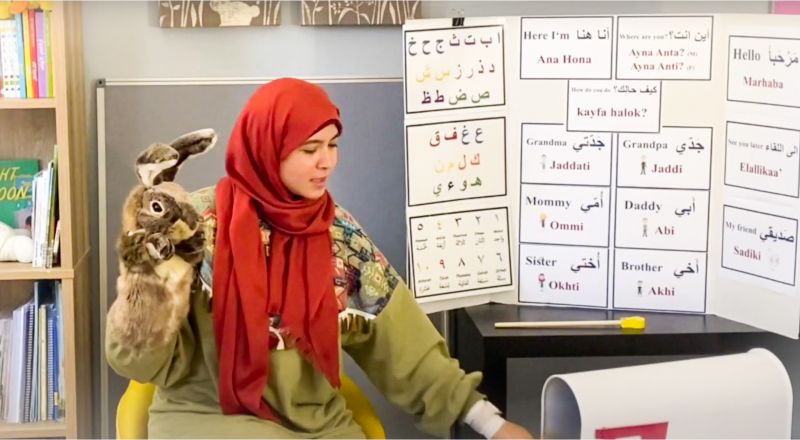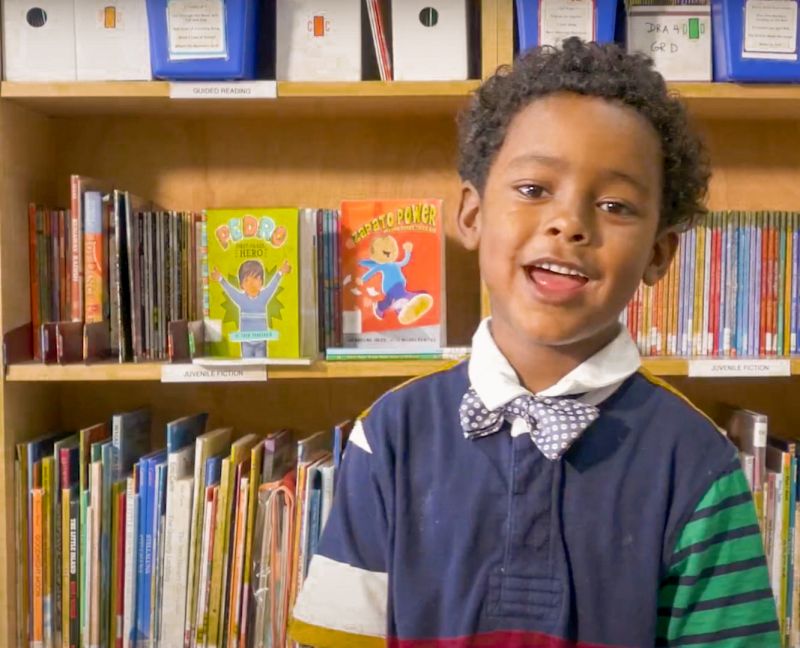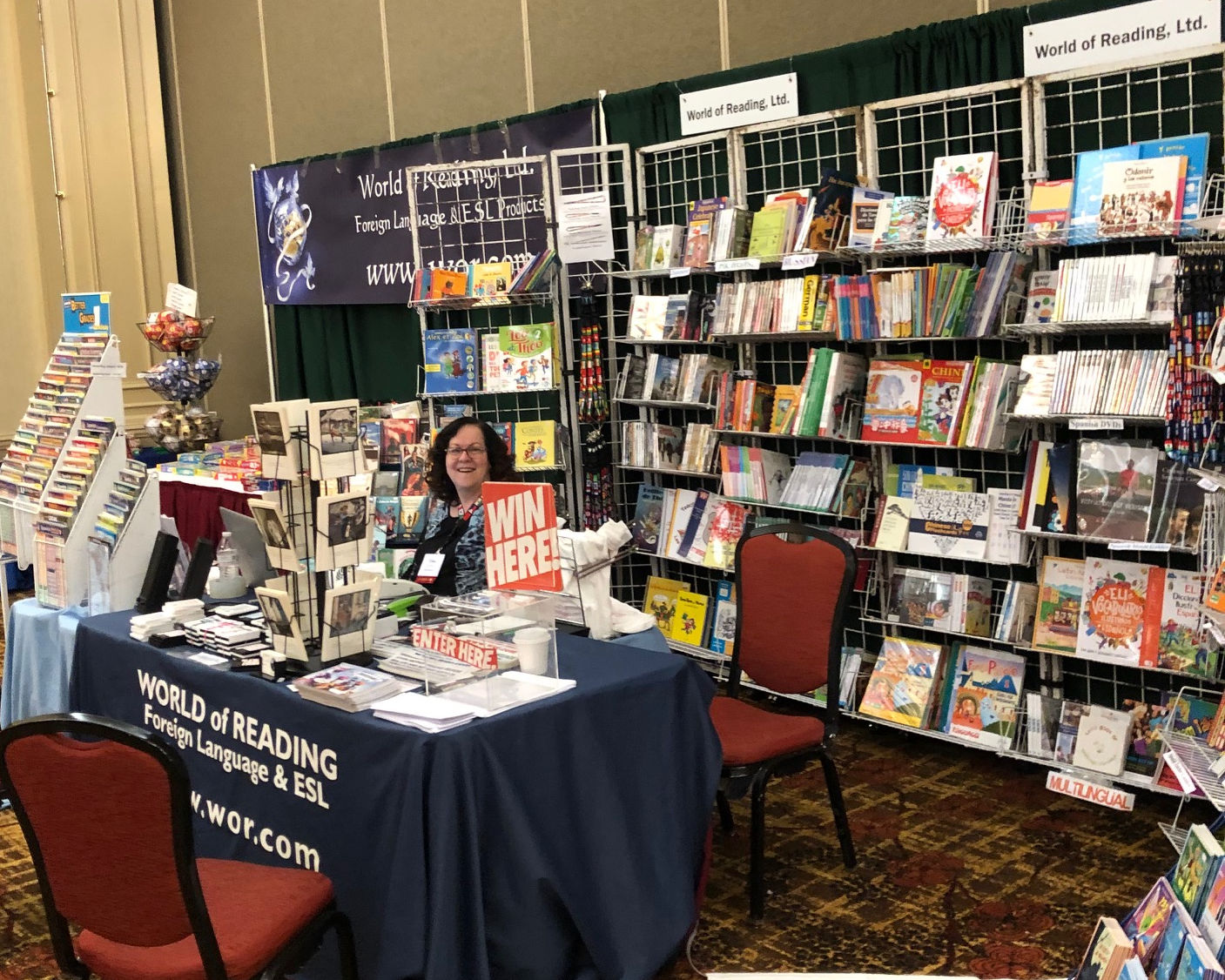Share your content with us! Use #showmemultiliteracy hashtag on Facebook!
Interview with Cindy Tracy, owner of World of Reading
As we work to support teachers who are applying for Show Me Multiliteracy mini grants, we have been looking for high quality products that will appeal to multilingual learners. World of Reading is a site with excellent resources to offer! In this interview, learn more about Cindy Tracy, owner of World of Reading, and how you can find quality resources that promote multilingual communication, collaboration, and community in your classroom.
Which languages do you speak? When and how did you learn them?
I speak French and Spanish well, and a little Russian, Dutch, Hebrew, and German. I started French in 5th grade and added Spanish in 9th grade. I started Russian my last semester in high school, doing a project with my grandmother to learn Russian and all about her life growing up in Russia (she emigrated to the U.S. in her early twenties with my grandfather). I double majored in French and Spanish in college (Tulane University) and minored in Russian. I spent my junior year in Paris, where I really improved my French. I spent the summer after graduating from Middlebury College in Vermont in a 12-week intensive Russian course. I got an MBA from Syracuse University in international finance, determined to use my languages in a job. I then started a 12-year banking career, where I used my languages and finished as manager of International Private Banking and travelled twice yearly to Mexico and Costa Rica, really improving my Spanish.
Which parts of the world have you visited?
Canada—Quebec and Ontario; Mexico—Mexico City, Torreon, Puebla, Puerta Vallarta, Cancun; Bogota, Colombia; Costa Rica; Brazil; Europe—France, Spain, Belgium, Luxembourg, Germany, The Netherlands, Italy; Israel.
Why and how did you start your business World of Reading?
In 1989, I started World of Reading, selling foreign language and ESOL products. Our oldest son had started pre-k at the Atlanta International School, and we could not find products for him in French. I literally went to the downtown public library, found a book with all the publishers worldwide and sent off about 20 letters. From that, I chose publishers in French, Spanish, German, Latin, German and Russian and with the help of Kinko's, printed my first catalogue of books. Over the years, I expanded into audio cassettes and then CDs, video cassettes and then DVDs, interactive software, board games, t-shirts, and realia. When the internet was first introduced, I thought I would try it and got the three-letter domain— wor.com!
Why is language learning important in the world today?
Learning a second language gives you a chance to be part of a community with a different culture and learn more about the world. It can help you become more knowledgeable about your own language—improving your vocabulary and grammar knowledge, having to learn about another language. It opens you up to meeting other people with a different culture, getting a better job, making travel easier, understanding films in other languages, etc.
How do you find and select multilingual resources?
In the past, I have exhibited at foreign language teacher conferences, meeting publishers from around the world. They will also hear about me or find our website, and contact me about selling their products in the U.S. A teacher might hear of a product and ask me if I can order it for them from the publisher—many schools cannot order directly from a publisher outside the U.S. That is how I have found and established relationships with many overseas publishers.
Can you think of any examples where knowing another language had an immediate impact on your interactions with others?
In travelling abroad, where I met someone who did not speak English, it enabled me to communicate with them! When I was in training at the bank, I worked in a branch for a couple of months. I actually got to use my Russian with Russian speakers who lived nearby and were thrilled to interact with someone in the branch who spoke some Russian!
What are some ways teachers can encourage language study, particularly among monolingual families who may be resistant?
I actually did some research on this question—I think showing scientific evidence is important for reluctant families.
Attitudes against early bilingualism are often based on myths and misinterpretations, rather than scientific findings. Popular books such as The Bilingual Edge (King & Mackey, 2009), and articles such as The Power of the Bilingual Brain (TIME Magazine; Kluger, 2013) have touted the potential benefits of early bilingualism. One of the most important benefits of early bilingualism is often taken for granted: bilingual children will know multiple languages, which is important for travel, employment, speaking with members of one’s extended family, maintaining a connection to family culture and history, and making friends from different backgrounds. Several studies have suggested that bilinguals show certain advantages when it comes to social understanding. In some ways, this is not surprising, as bilinguals must navigate a complex social world where different people have different language knowledge. For example, bilingual preschoolers seem to have somewhat better skills than monolinguals in understanding others’ perspectives, thoughts, desires, and intentions (Bialystok & Senman, 2004; Goetz, 2003; Kovács, 2009). Young bilingual children also have enhanced sensitivity to certain features of communication such as tone of voice (Yow & Markman, 2011).
You can also try having a simple class on the weekend or maybe after school on Friday for the parents AND their children. Help the parents learn some of the language.
To learn more about World of Reading and to order materials, please visit https://www.wor.com/

Artist Shares Significance of Multicultural Mural
Parkview High School, Springfield, MO

Getting Started with Translanguaging in the Multilingual Classroom
How can teachers effectively use translanguaging strategies in their work with multilingual learners?

Interview with Cindy Tracy, owner of World of Reading
WOR - Source of quality foreign language and ESL products.

Surveying Multilingual Families
Have you thought about asking the families of your English learners what they think about the services for them at your school? We have a tried-and-tested survey instrument for you at no charge.

Calling All Heritage Language Schools in the Community
Are you teaching a heritage language program on the weekends, after school, in a play group, or during story time at your local library? Why not register it with the Heritage Language Programs in the United States?

Creating a Supportive Environment for English Learners
Learning a new language like English can be tough. It’s even more difficult for students new to the U.S., many of whom had to leave their home countries under traumatic conditions.
